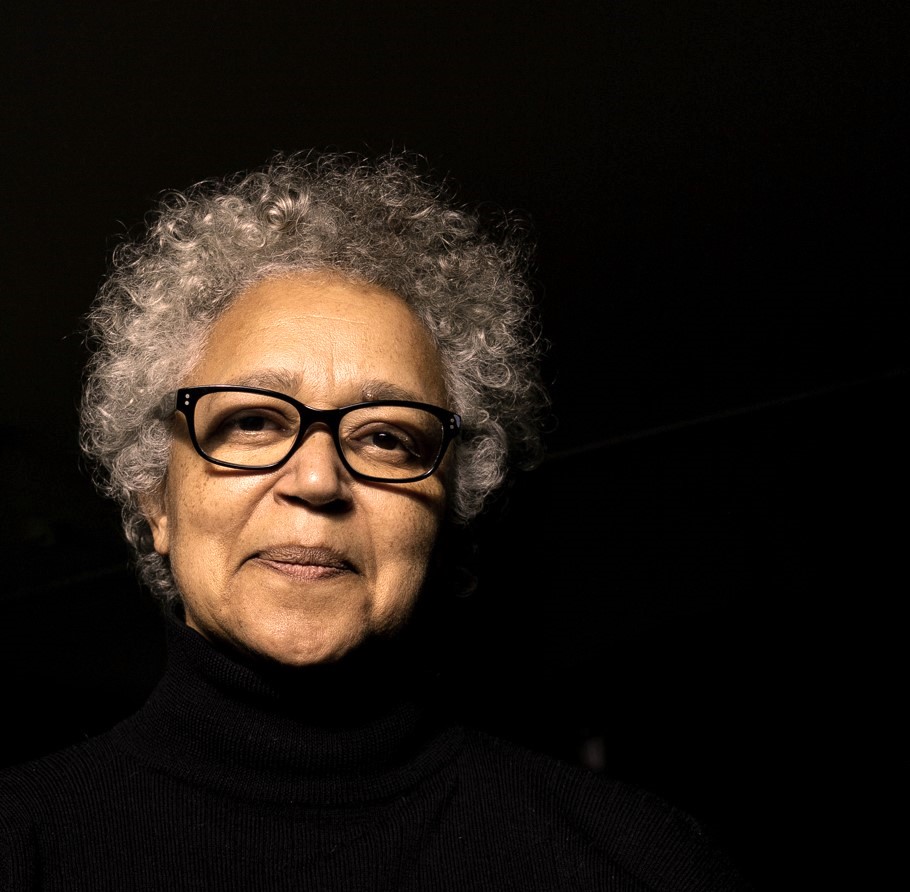
Quita Alfred is an award-nominated costume designer with more than 35 years of experience working in and around the film industry. She is originally from Winnipeg, Manitoba, and has lived and worked in Toronto, Ontario since 1982. She now splits her time between the two cities.
Starting off as a sewer in the film industry, Alfred eventually moved to working on set, where she spent many years learning the practical side of creating costumes for the screen, all the while looking towards costume design. Having spent time in every position of a film costume department, both on set and in the office/workshop, Alfred began designing for film in 1998, when she completed her first feature as a costume designer on Russell Mulcahy’s “Resurrection.”
Alfred’s recent designs can be seen in Sarah Polley’s film “Women Talking, ” starring Claire Foy, Frances McDormand and Rooney Mara, for which she received a Costume Designers Guild Award nomination for Excellence in Contemporary Film. Alfred and the rest of the creative team of “Women Talking” were recipients of the award for excellence in Craft Achievement at the 2022 “Hamilton Behind the Camera” awards in Los Angeles. The film was nominated at the 2023 Academy Awards for Best Picture, and its director Sarah Polley won the Oscar for Best Adapted Screen Play that year.
Alfred’s projects awaiting release include the features “Silent Planet” with Elias Koteas and Briana Middleton, and “Aberdeen”, starring Gail Maurice.
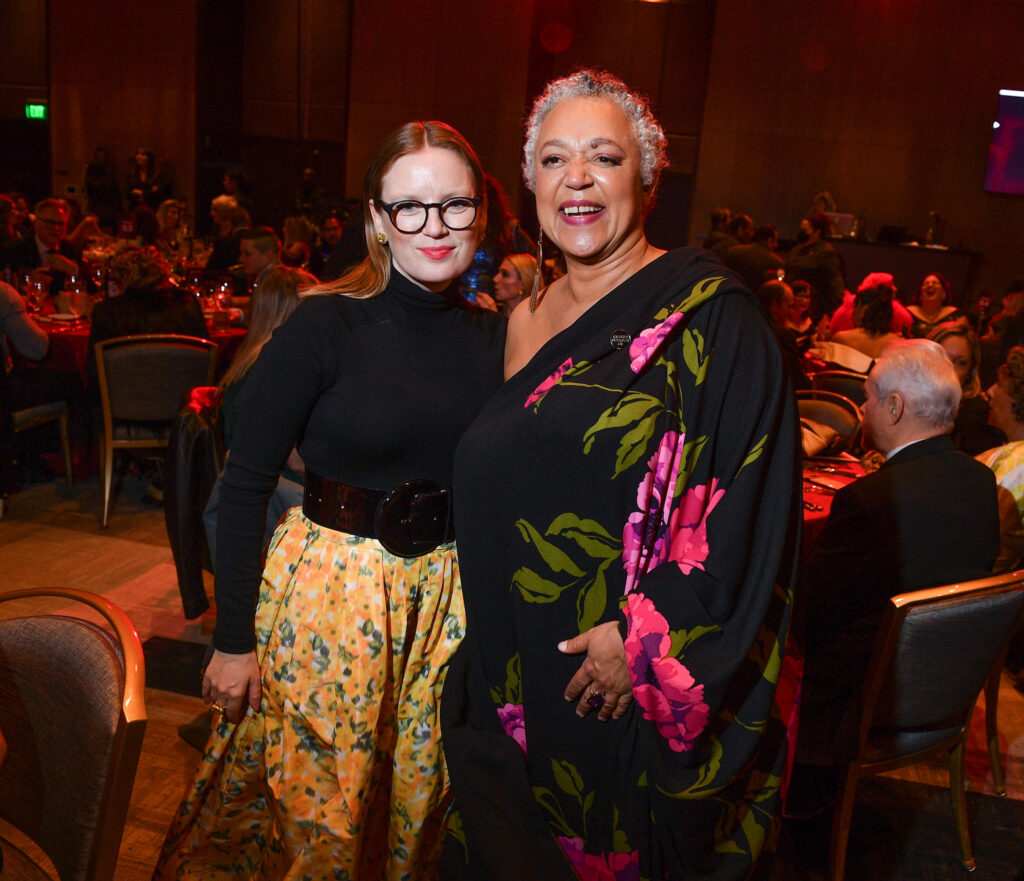
When and how did you start in the media production industry?
The short answer to that is I was working as a sewer at a costume production studio in Toronto in the early 80’s and met several film costume designers. They suggested that there was work to be had in film, and that I should try to become a part of one of the unions that existed at the time.
The long answer involves studying theatre production at what was then called Ryerson Polytechnical Institute (now Toronto Metropolitan University – both too long!), working at several prestigious theatres, including the Stratford Festival, and realizing I didn’t really like the culture of that industry, at the time. Film seemed to offer more creativity, more independence, and certainly more groceries (the wage difference was significant!)
What area of the film industry do you work in now and why?
I’ve always worked exclusively in the Costume Department in film and television. I’ve been sewing since I was four years old. You can blame Barbie for that. Not Greta Gerwig’s Barbie, but the old school, buxom girl. My interest has always been in sewing and design; however, as the years and the industry have progressed, I’ve realized how important management skills are to running a large department. I enjoy that aspect of my work much more now than I did earlier in my career. Not to the exclusion of creative work, but in a way, both can be creative and certainly rewarding.
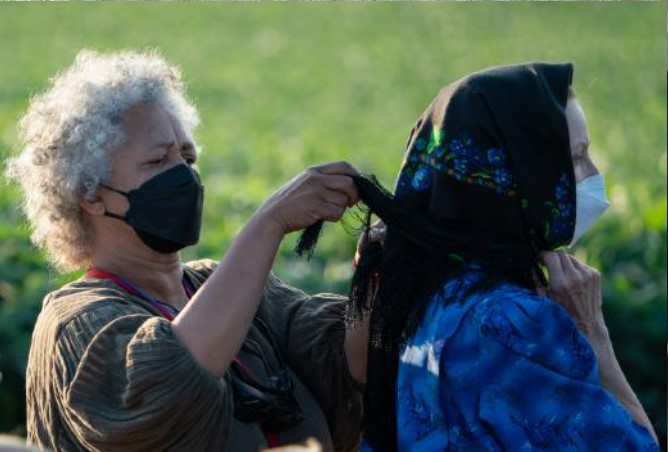
What has been a substantial change in the industry since you started?
Oooohh… don’t get me started! You can see by my silver hair that I have opinions…
For the sake of brevity, let’s say that Finance (yes, with a capital “F”) has been the issue that I have observed making the biggest changes in the film industry in recent years.
Not only do financial concerns trump artistic expression more than ever now, the focus on the bottom line for studios and production companies means that we are always now having to do more with less. Restriction can lead to creative innovation, in the right circumstances, but the situation has become so extreme now that, in my opinion, creativity is being hampered. This focus also puts so much more managerial responsibility in the hands of the creatives that often the creatives don’t have time to be creative. This wasn’t always the case. There is a distinct lack of respect for the work that creative people do in the industry, now. Again, this wasn’t always the case; when I began in the industry, the people “upstairs” knew what the rest of us did, and respected not only our work, but the resources required to get the job done. This has changed exponentially. There are, of course, still some gems, but in general, it’s not the same. As was evidenced by the recent strikes in the industry, the divide is becoming wider and untenable. Let’s fix that.
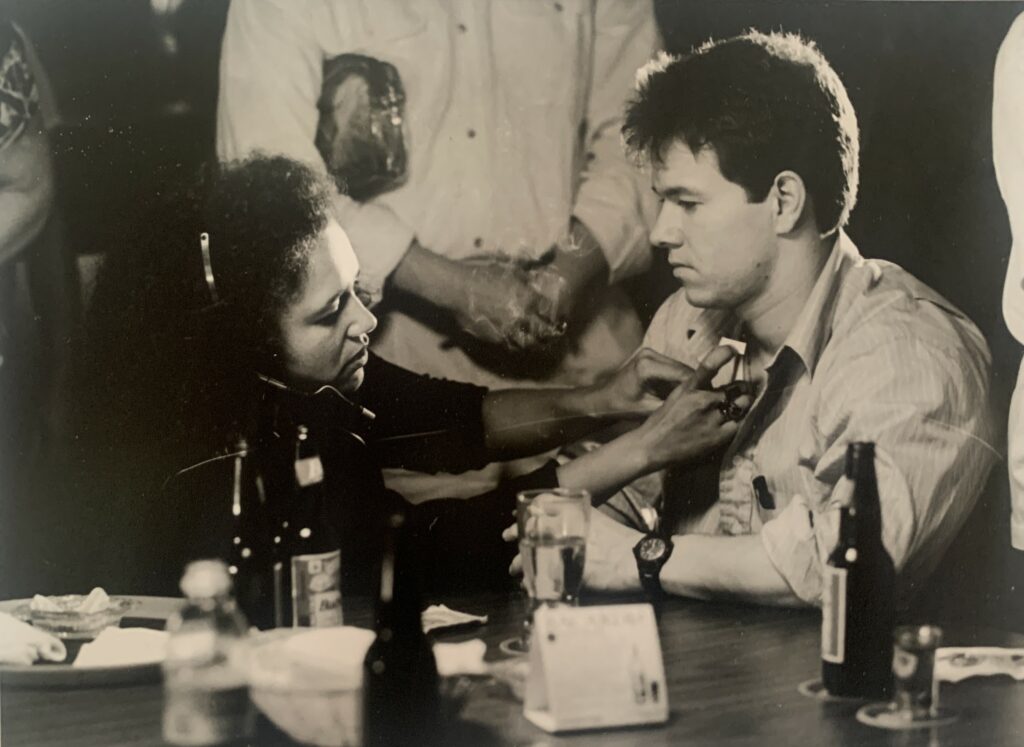
If you could give yourself advice today to yourself in the past, what would it be?
Be more inquisitive. Ask more questions of other departments. Dig a little deeper.
What is advice you would give to someone starting off in the media production industry?
Hang in there! It’s a difficult time to be starting in this industry, I think, with the perceived instability. However, I am so encouraged by the young people I work with now – I mean really young, fresh out of high school-young. They seem to have a great attitude, a lot of curiosity, and definitely have had more exposure to the industry than people my age did, with resources and courses in schools, for example. It’s great to see.
One really important thing I would tell them is to talk to anyone and everyone. Cold call companies, people, industry organizations. I know this isn’t always easy for people new to the world in general, never mind the film industry, but social media, when it uses its super-powers for good instead of evil, can connect people and ideas in ways that we didn’t have access to, years ago.
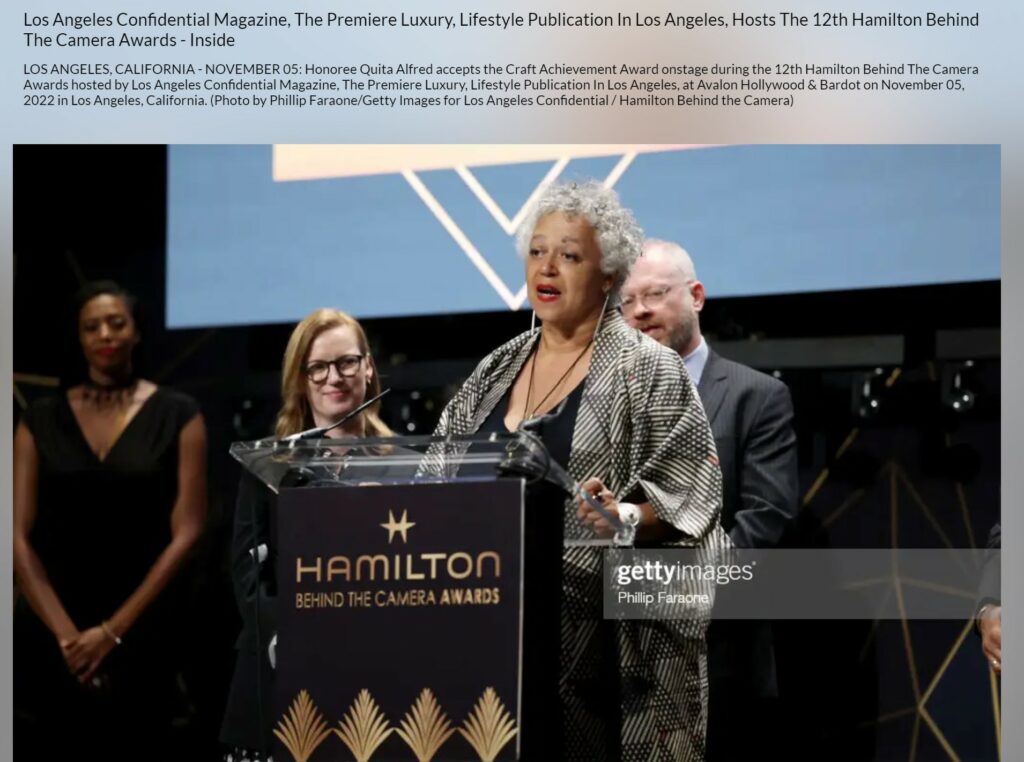
Why is learning and training important?
I’ll start with my 35+ years-in answer – because it keeps you young! And relevant.
At the beginning of my career, I would have said something like, “So that you can be excellent at your craft, and well-trained.” I now know that mistakes and experimentation can be just as effective at producing that result, within a supportive environment. This is why I try my best to pass on relevant advice and training tips to younger workers, now. That’s how I learned. I was lucky enough to have had excellent mentors who took the time to show me the way, before there were YouTube tutorials. Now I find learning an excellent way to stretch my brain and thereby, my creativity. I make a point now, when giving constructive criticism on the job, of saying, “I’m telling you this to your face so that people don’t say it behind your back when you leave the room (or project, or industry).” I also tell young workers things because someone took the time to tell me important things, and that compassion helped me to be better at what I love to do.
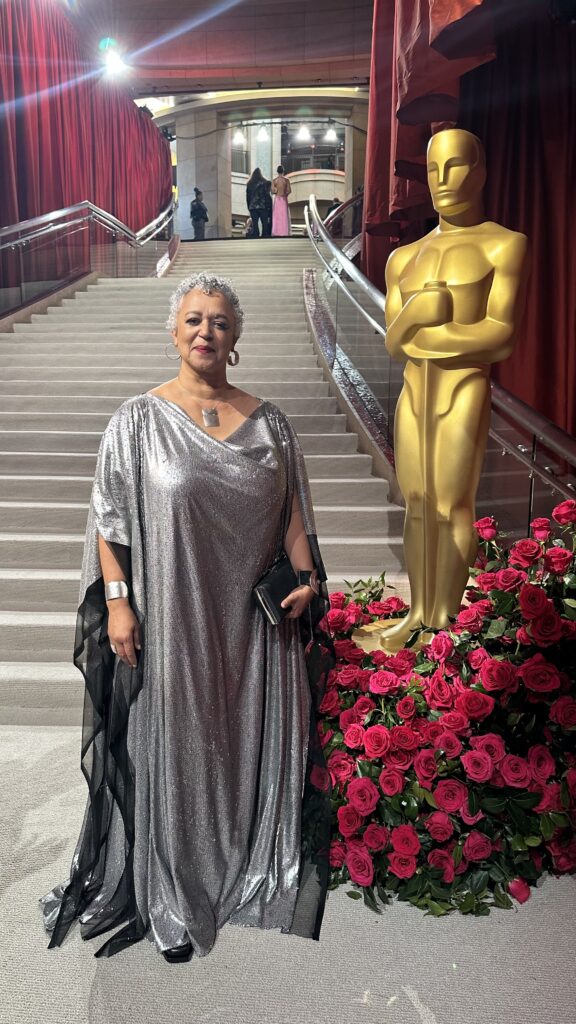
What are some of the films, TV series or even books that have inspired you? How about anything new you’ve been into?
That’s always a tough question. Sooo many influences!
I’ve always loved to read, and I’ve always been a visual person. Galleries, museums, travel, have always been inspiration for me, especially travel. I thought about being an anthropologist for a while, when I was still in school.
Travel is especially important to me because of the exposure it gives you to cultures that are different to your own. It seems like that would go without saying, but I am not a fan of “interpretations” of other cultures through the lens of what might be considered the dominant view. I don’t mean cultural appropriation; I mean creative or professional laziness. Travel is important not only visually, but in the respect that it gives you exposure to other perspectives and opinions about the way people present themselves to the outside world. Psychology plays a big part in my work; what’s this character’s self-esteem like? How can we portray to the audience what’s going on inside this person by carefully choosing what’s on display outside?
So, specific movies or films, no, but specific styles of expression – yes. Architecture and spaces inspire me, as well. Also, I love, love, LOVE a good physical magazine. Not only for fashion or interiors or travel, or music, but for their layouts, graphics, tactile experience.
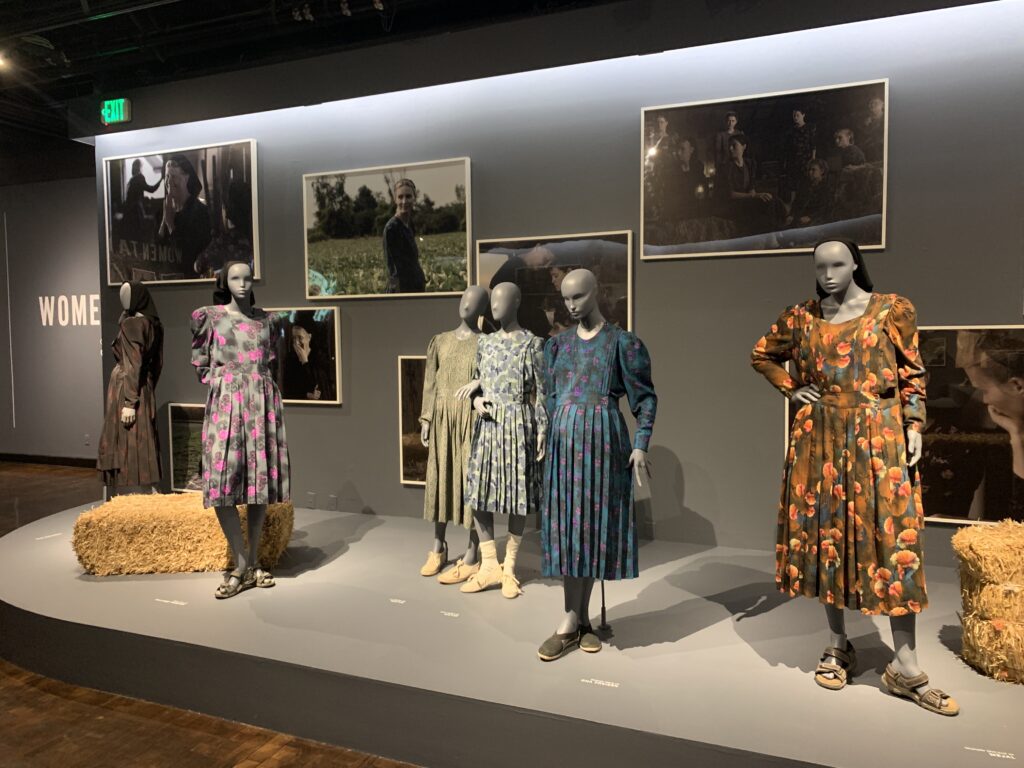
Oh – one specific project did just come to me, after all that. I have to give props to costume designer Dierdra Govan for her work on the Amazon Prime series “Harlem”. The PURE JOY that she puts on screen is delicious. I met Dierdra many years ago while working in New York, and to see her work now makes me so happy. Colour. Texture, Shape, Everything. I love it because it’s engaging and joyous and over the top in the best kind of way. Like eating a delicious meal with your eyes.
Is there something about you or an interesting past experience that you’d like to share with your colleagues?
Another tough one! For someone so gregarious, I’m really quite private.
Hmmm… I’ve had an awful lot of fun working on big projects during my career. The social aspect of working in film is much more important to me than the projects themselves. My dad is a bigger cinephile than me by about a thousand times! I’m almost more interested in the process than the result – there – that’s a reveal! Of course, the finished product is always the bottom line; I believe that a rewarding experience provides rewarding results.
I’ve been very lucky, for the most part, to have had amazing work experiences with people who are excellent at their jobs. People who understand that the environment is just as important as the result. I joke now about only working with people I love. I only have to love you for a few minutes over a coffee, but… if it ain’t right, it ain’t right. THAT’S something I would tell my younger self – “Don’t put up with bad situations! This job can be really FUN!” If the vibe check is not passed, move on! You WILL work again. There will be other projects.
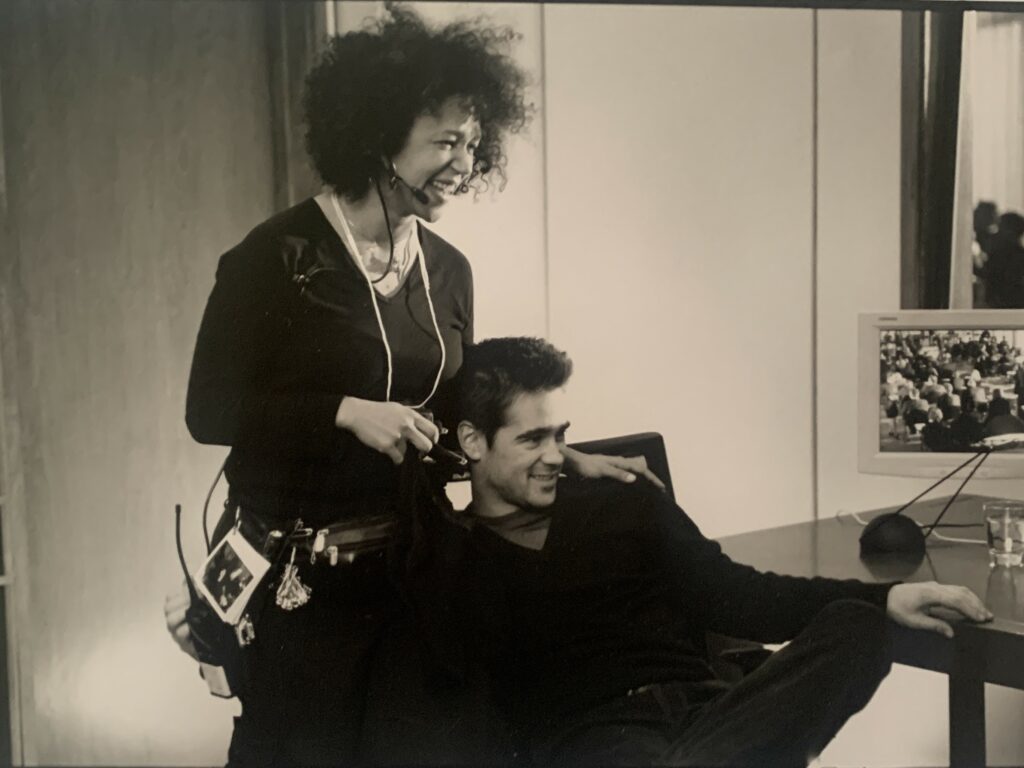
Is there someone within the film industry you would like to work with and why?
Not specifically, that I can think of. What I do find exciting is the process of encountering people that I never knew existed! Environments and projects that I wouldn’t have considered, in the past, because I was in the unusual (nice) position of having started in the industry when it was booming, in Toronto. I now work on much smaller projects than I did when I was starting out, but have found some of the small ones to be the most rewarding, by far. Now, I’m up for having my mind changed or my world expanded. The baby film technician-me was a features snob (!)
Where do you see yourself in ten years from now?
Travelling for work, designing, teaching, in that order. Wearing lower heels to premieres. I’m still in it for the parties!!!!
FTM is a non-for-profit charity and member of the Province of Manitoba’s Sector Council program funded through the Economic Development, Investment, Trade and Natural Resources. FTM builds a highly skilled and adaptable film industry workforce to support the activities of Manitoba production companies. FTM collaborates and partners with members of the film industry to identify training needs to support workforce development.
